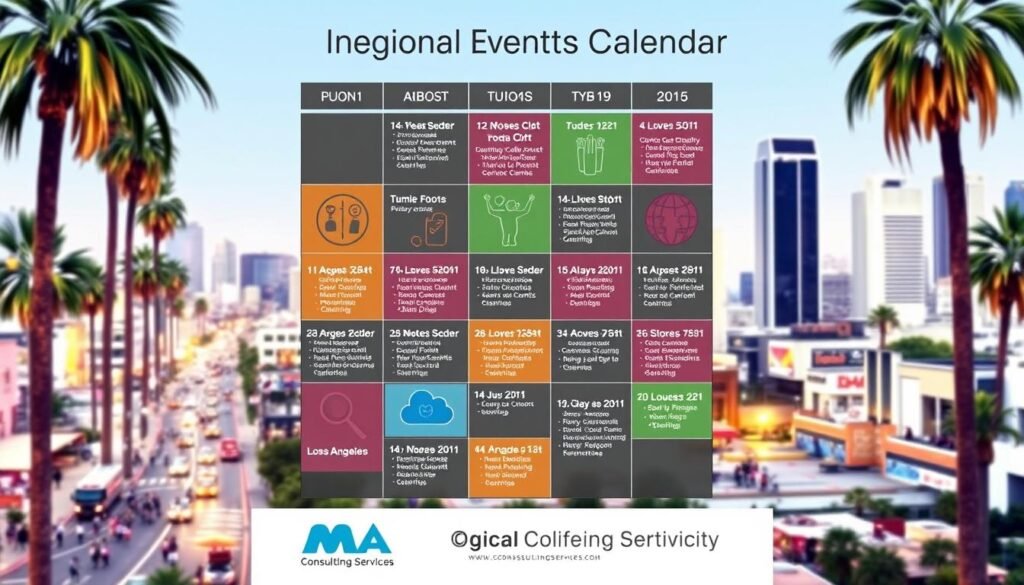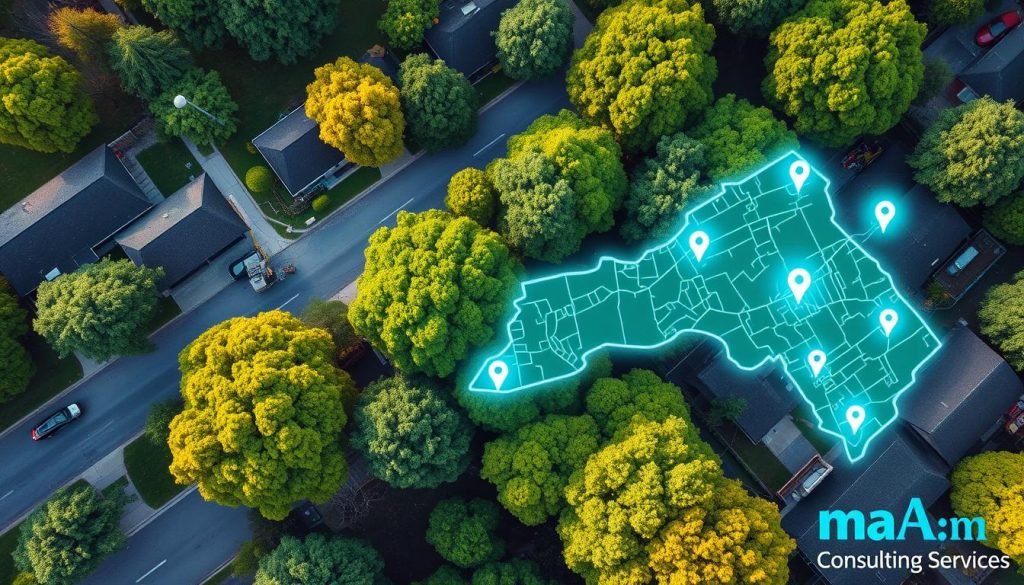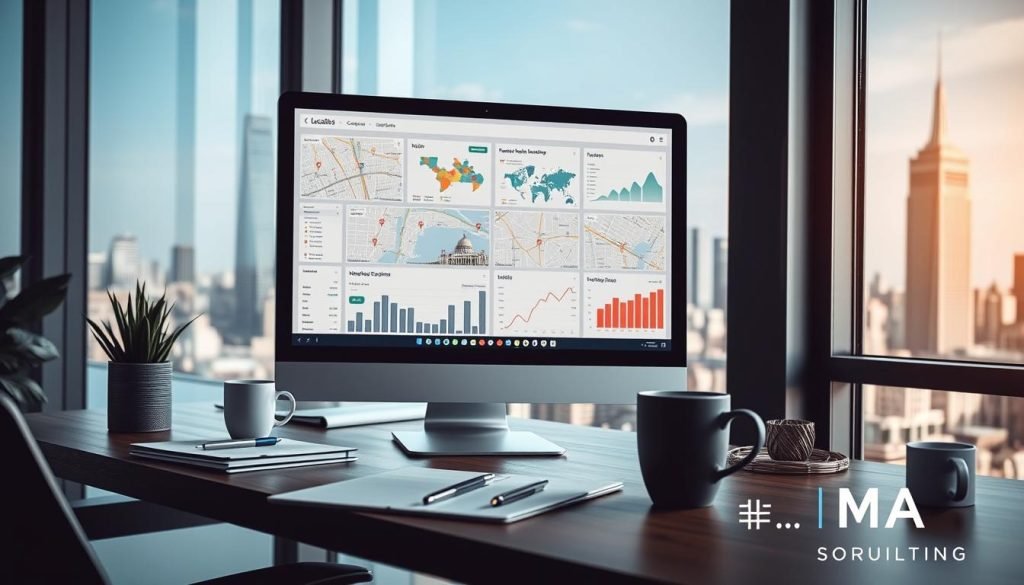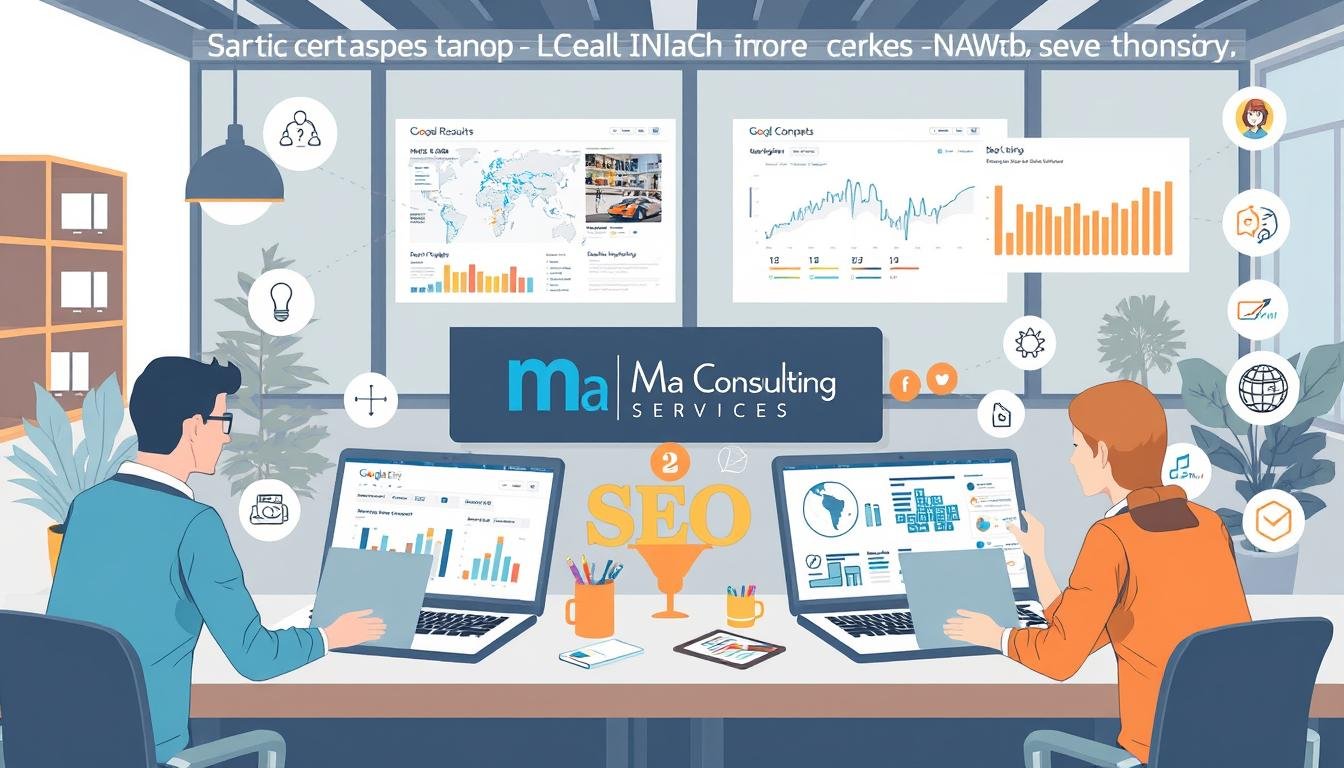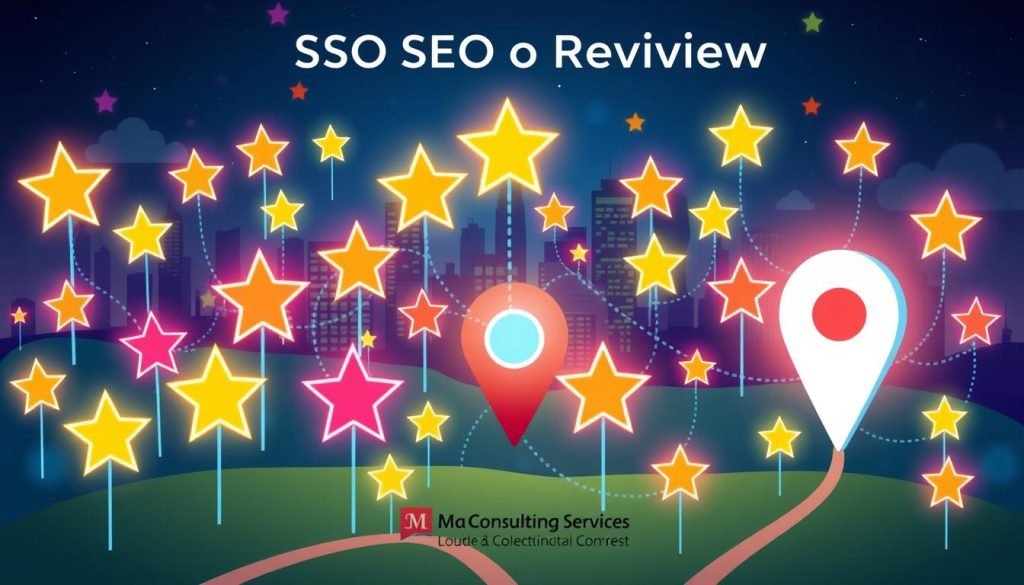Did you know 75% of all clicks go to the top 3 local search engine results? This shows how vital it is for roof repair companies to rank high in Google’s Map 3-pack. SEO is key in a competitive roofing market to find new customers and stand out from rivals.
More than 70% of people check a company online before deciding to choose them. A strong online presence is crucial for getting new clients. By focusing on local SEO, roof repair companies can boost their website’s reputation and rank better in search results for roofing services. This way, you can reach customers who are already looking for you online.
Key Takeaways
- Ranking within Google’s Map 3-pack is crucial for attracting 75% of local search clicks.
- Reviews account for 16% of all ranking signals for local searches, highlighting the impact of consistent customer reviews.
- Targeting “hidden terms” can help you capture nearly half of all Google clicks.
- Combining in-person and automated review requests can increase responses by 147%.
- Voice search is on the rise, with one-third of Americans using it monthly, requiring optimization for this growing trend.
Optimizing Your Google Business Profile for Local Search
As a roofing company, your Google Business Profile is key for local search visibility. It helps generate leads. By claiming and verifying, you can show up in Google Maps and the Local Map Pack, which gets 75% of clicks.
Claiming and Verifying Your Google Business Profile
Claiming and verifying your Google Business Profile is essential for local SEO. It makes sure your business info is right and current. This helps potential customers find and reach out to you. Start by visiting google.com/business and follow the guide to claim your profile.
Enhancing Your Google Business Profile
After claiming and verifying, enhance your profile with more details. Add unique photos, keep your info current, and post regularly. Also, link your website to your Google Business Profile. This boosts your listing in local search results.
| Optimization Tip | Benefit |
|---|---|
| Add Unique Photos | Showcase your work and build trust with potential customers |
| Provide Detailed Business Information | Help customers find and connect with your roofing company |
| Post Regular Updates | Keep your profile fresh and engaging for search engines and customers |
| Connect Your Website | Improve your Google Business Profile’s visibility in local search |
Optimizing your Google Business Profile boosts your google business profile for roofing companies, claiming google business profile for roofers, and enhancing google business profile for roofing. This increases your local seo for roofers google my business, google maps optimization for roofing contractors, and local business listings for roofing companies.
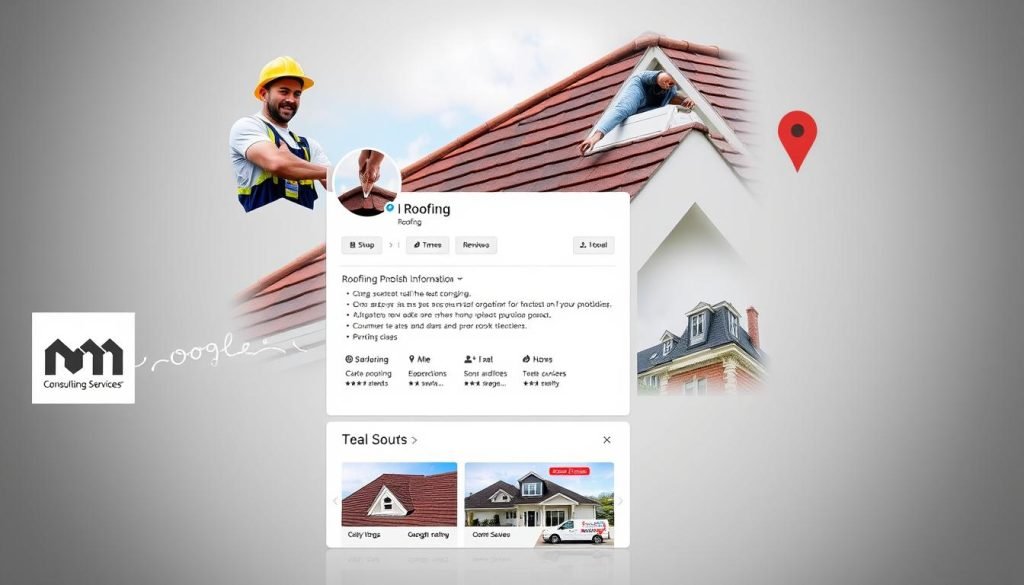
Essential Local SEO Elements for Roofers
As a roofing contractor, making your online presence better for local searches is key. An improved Google Business Profile is just the start. Other important local SEO elements can really help you get noticed and bring in more customers. From checking in at job sites to finding the right keywords, these tactics can change the game for your roofing business.
Job Site Check-Ins
Using job site check-ins, or “pins,” lets roofers show their work in cities near their main office. This helps you rank better in local searches, even if you’re not right there. Google sees you’re working in more places, thanks to these check-ins.
NAP Citations
Having the same name, address, and phone number on sites like Yelp and Facebook is crucial. It makes your business look real and boosts your local search ranking. Keeping your NAP info the same everywhere is a key local SEO tip for roofers.
Online Reviews
Reviews are a big deal, making up 16% of how Google ranks local businesses. Roofers need to get lots of good reviews from happy customers. By asking for reviews, answering them, and keeping your online image strong, you can really improve your local search ranking.
Local Keyword Research
For roofers, finding the right keywords is different. You need to find long-tail, location-specific terms that regular tools might miss. By knowing what your customers are searching for, you can make sure your site and local listings show up in the right searches.
| Local SEO Element | Importance | Impact |
|---|---|---|
| Job Site Check-Ins | High | Helps roofers rank for local searches outside their primary service area |
| NAP Citations | High | Validates business information and improves local visibility |
| Online Reviews | High | Accounts for 16% of local search ranking signals |
| Local Keyword Research | High | Identifies long-tail, location-specific search queries to target |
By using these key local SEO elements, roofing companies can get more visible online. This means more local customers, better leads, and more sales.
Conclusion
For roof repair companies, using local SEO is key to stand out and get more customers. They can do this by improving their Google Business Profile and making quality content. They also need to build local authority and focus on other important SEO elements.
Working with a top SEO agency like Ma Consulting Services (www.maconsultingservices.site) can make a big difference. They help roof repair companies improve their online presence and get more leads. This way, they can grow their business over time.
Having a solid local SEO plan is a big advantage for roof repair companies. It helps them become leaders in their field and trusted in their community. This leads to more business and long-term success.
FAQ
What are the essential local SEO strategies for roof repair companies?
For roof repair companies, key local SEO strategies include optimizing their Google Business Profile. They should also create quality content and build local authority through links. Getting positive customer reviews is also important.
Using job site check-ins and targeted local keyword research can help too. These strategies improve visibility and reach.
Why is optimizing your Google Business Profile crucial for local SEO?
Optimizing your Google Business Profile is key for local SEO. It helps your business show up in Google Maps and the Local Map Pack, which gets 75% of clicks. Claiming and verifying your profile is a must.
Adding unique photos and up-to-date info can boost your visibility. Google Posts can also help.
What other local SEO elements are important for roof repair companies?
For roofers, other important local SEO elements include job site check-ins and NAP (name, address, phone number) citations. Customer reviews and targeted local keyword research are also crucial.
These elements help validate your business info and improve visibility. They also show your expertise, experience, authority, and trust (E-E-A-T) in your area.
How can roofers generate positive customer reviews for local SEO?
Getting positive customer reviews is vital, as they make up 16% of local search ranking signals. Roofers should ask happy customers to leave reviews on Google, Yelp, and HomeAdvisor.
What is the importance of local keyword research for roof repair companies?
Local keyword research for roofers is different from traditional keyword research. It focuses on long-tail, location-specific terms and “hidden” keywords. Targeting these keywords helps roofers reach customers searching online.
Source Links
- https://www.roofingwebmasters.com/local-seo-for-roofers/
- https://www.webfx.com/industries/home-repair/roofing/seo/
- https://www.linkedin.com/pulse/seo-roofers-companies-essential-strategies-success-2024-shakibhub-ml0hc?trk=public_post
- https://broadly.com/blog/google-business-profiles-for-roofing-companies/
- https://www.jobnimbus.com/blog/local-seo-roofing/
- https://blackstormroofingmarketing.com/top-10-tips-to-improve-your-local-roofing-seo-right-now/
- https://medium.com/@dndseoservices/mastering-local-seo-for-roofing-companies-step-by-step-7509f9c5775b
- https://www.thedallasseocompany.com/blog/local-seo-for-roofing-contractors
- https://masgroup.agency/blog/local-seo-for-roofing-companies/
- https://www.tritoncommerce.com/blog/how-to-track-and-measure-the-success-of-seo-for-roofing-contractors
- https://riseroofers.com/unleashing-the-magic-of-local-seo-for-roofers-in-2024/





